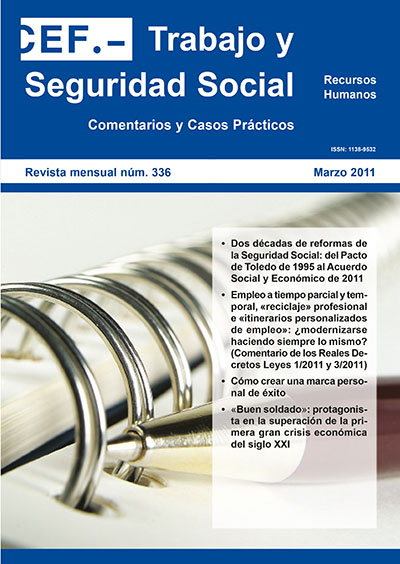Employment and temporary part-time, «recycling» professional e «individual employment paths»: Modernising always doing the same?
(Comment of the Royal Decrees Law 1/2011 and 3/2011)
DOI:
https://doi.org/10.51302/rtss.2011.5191Keywords:
employment policies, Public Employment Services, transitional labour markets, flexicurity, employment rightsAbstract
Once the labor reform has come the turn of the «active employment policies». The dramatic employment crisis that forced Spain to bet suffers a profound renovation of «public employment services» and the measures to improving employment opportunities for unemployed people. This need is greater for certain groups, especially young people and long-term unemployed. To try to correct these major imbalances in the Spanish labor market have been issued two Royal Decrees Law, the RDL 1/2011 and RDL 3/2011.
This article discusses in detail the contents of both rules to reform the labor market policies, both short-term and structure. The study examines the most interesting aspects of the various employment programs covered in the standard situation, and clears the main novelties of the Employment Act. In general, the balance being made of this reform is quite skeptical, because it does not address any of the fundamental problems that have raised the active employment policies and public employment services. However, developments such as the recognition of the universality of the right to employment services is the subject of special attention.


















